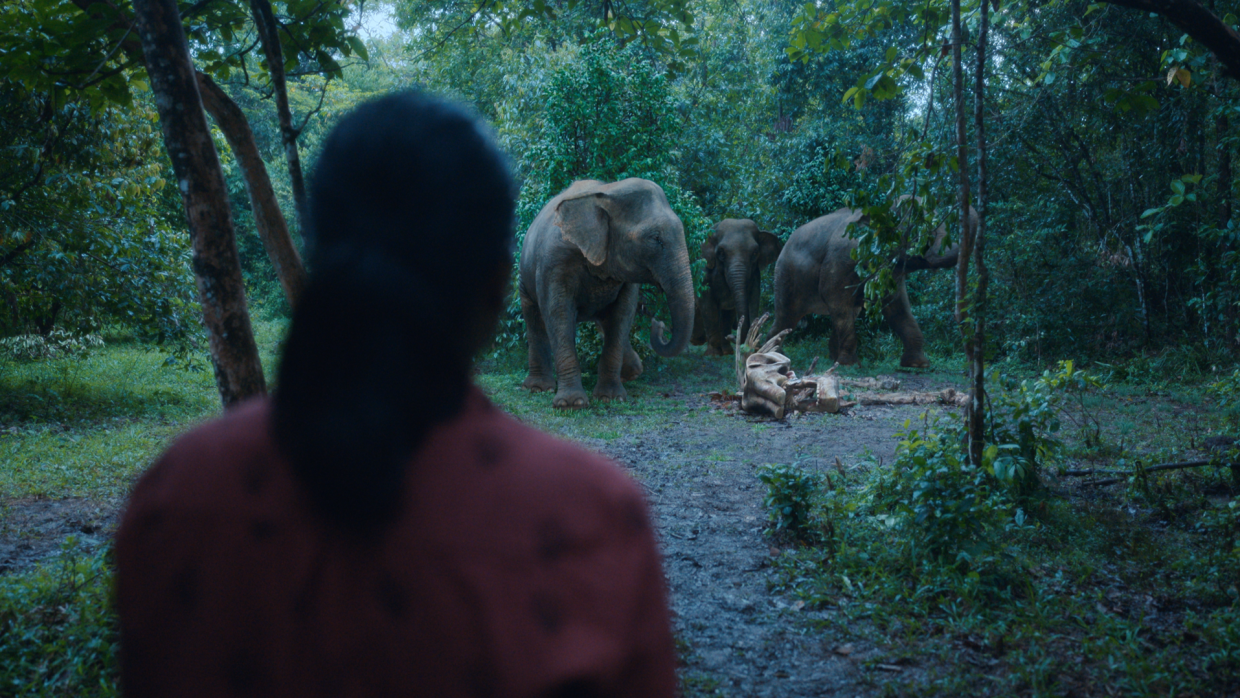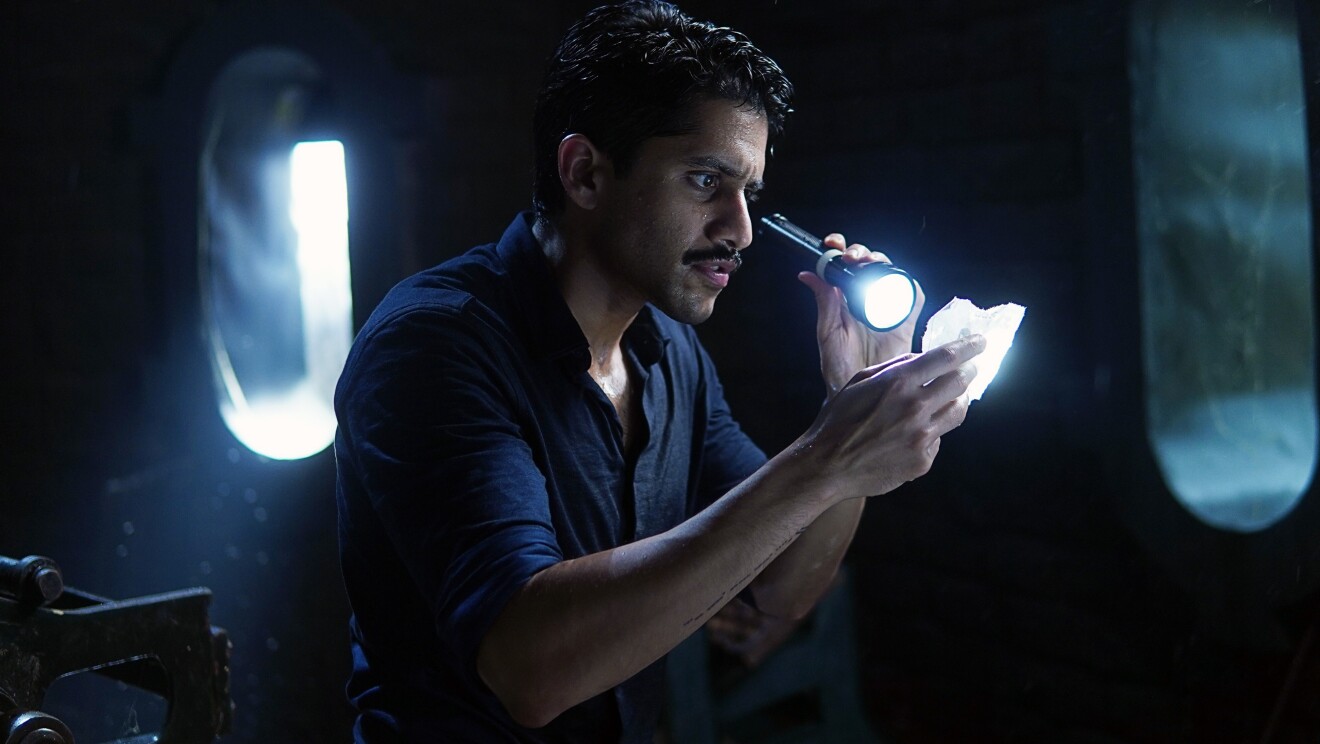The year is 2015 in Kerala. A frail, teary-eyed man walks into the office of the DFO (Deputy Forest Official) with a startling confession—he is a forest watcher and has witnessed the slaughter of as many as 18 elephants. For the officers, who are under the assurance that elephant poaching last happened two decades ago, this is a startling disclosure.
Richie Mehta who created the riveting Delhi Crime, now focuses on a crime that’s not only a threat to the ecosystem but could also pose far-reaching consequences on human lives and their livelihoods. The eight-episode series is based on true events from 2015 that uncovered the largest ivory poaching ring in Indian history.

The staging is atmospheric as the narrative takes us to the detailed machinery of forest officials. When the Deputy Range Officer and team botch up the attempt to nab the Kingpin of poachers, Raaz (Noorudheen Ali Ahmed), they are forced to reshuffle their team on the case. With orders from higher-ups, Neel Banerjee (Dibyendu Bhattacharya) who previously worked with RAW is assigned the job and decides to bring Mala Jogi (Nimisha Sajayan) currently working as the bird sanctuary DFO in the state and another integral member, Alan Joseph (Roshan Mathew)—a snake bite expert and data analyst who is working undercover at the wildlife crime division.

The story unwinds gradually, and the jungle (amplified by a moody background score) understandably looms over the narrative as that ubiquitous witness to the cycles of human cruelty and geniality. When Neel agrees to take on the case and work discreetly without any ‘internal sabotage,’ the characters start to take form in front of us.
Mala Jogi is an efficient, plain-speaking officer who stays with her mother and a pack of dogs. She has an on-and-off relationship with Vijay Babu (Ankith Madhav) who has been suspended for the failed operation to nab Naaz. She knows the jungle off-pat and seems to share more empathy for animals than humans. However, she shows a maniacal obsession for nabbing poachers and wiping them from the face of the earth—this is because she hasn’t forgiven her father for being a poacher and hopes to cleanse his sins through her job.

Detected with a terminal illness, Neel knows that the punishing hours at the job have taken a toll on his family life. Alan shuttles between Delhi and Kerala and comes home to a wife who is unaware of the real nature of his job. He is mostly an absentee dad. On the other hand, Vijay walks around Mala wearing his heart on his sleeve. It is also clear that their conflict has more to do with his inertia at work than in their relationship.
The conflict in the characters' personal lives is handled softly and naturally, making it feel so real . Take this sweet scene where Alan takes his wife out in the middle of the night to confide about the nature of his job. Or the scene where Neel quietly tries to reason with his spouse for calling her friends without informing him. It’s subtle but effectively shows their disintegrating marriage. At times, you are baffled by Mala’s anger, so visible in all her relationships—that warrants more from her back story and her angst towards poachers.
The investigation and interrogation in the show are executed with the precision of reportage, as they methodically link the cues and take the lead. Though they retain some drama and intrigue in the investigation, maybe it has something to do with the subject that one often finds difficult to sustain interest in.
Though the poachers are portrayed as a debauched lot, they have been given distinct sketches. The narrative of Raaz is almost played out as a local legend—there are various exploits about the deliriousness in which he kills elephants. His mistress (who speaks broken Malayalam though she is shown to be a native) gushes about him as her childhood hero and it sounds oddly disquieting.
While the female representation is appreciable, the narrative prefers not to address the everyday misogyny that’s often witnessed in such organizations. Here Mala's gender is inconsequential in her line of work but that isn't always the case when it comes to the role of women in such organisations.

Expertly created through CGI, the visuals of elephant poaching and the abject coldness in which they go about it can still be unsettling to watch. The scene where Raaz, after killing an elephant, trains his gun at a baby elephant and shoots it makes you realize that killing these hapless creatures has transcended into the realm of power for him. Though it takes a while for the viewer to reach the point of Mala’s empathy for elephants, this scene is where the shift occurs.
Nimisha Sajayan is efficient as Mala, who channels her anger and inner demons at work. While Dibyendu Bhattacharya is meditating to watch as Neel—an officer unable to find a work-life balance, a special mention to the actors who played the poachers and to Ankith Madhav who played Vijay with such sensitivity.
Poacher is immersive, incisive, and backed by solid writing and performances. Most importantly it makes you cognizant of our ecosystem.





















